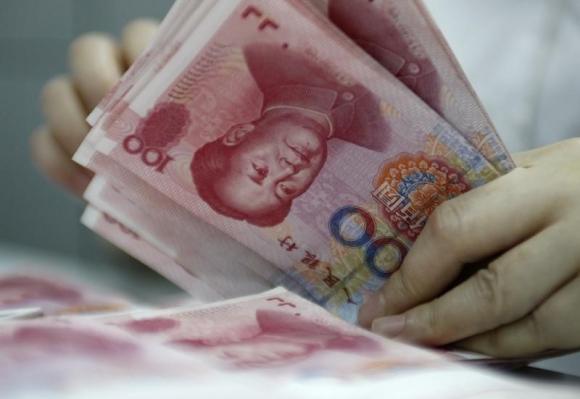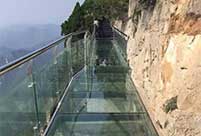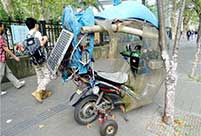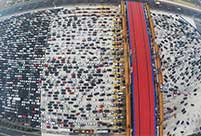


An employee counts yuan banknotes at a bank.
China's central bank cut interest rates on Friday-for the sixth time in a year-and reduced the reserve requirement ratio (RRR) for all banks.
The "double cut", as Chinese financial media described the move, came four days after it was announced that GDP growth in the third quarter expanded by 6.9 percent, lower than the government's annual target of 7 percent.
Also on Friday, Premier Li Keqiang told 2,600 officials at the Central Party School that the government still has many policy weapons to maintain steady economic growth.
In particular, he mentioned a "rational use" of methods such as cutting interest rates and the RRR.
The People's Bank of China-the central bank-lowered the one-year benchmark bank lending rate by 25 basis points to 4.35 percent and the benchmark rate for one-year bank deposits by the same margin to 1.5 percent, effective from Saturday.
The bank also cut the RRR by 50 basis points for all banks, taking it to 17.5 percent for the country's biggest lenders.
Chinese financial information website Hexun.com said the "double cut" can provide a maximum of 900 billion yuan ($140 billion) in additional liquidity to the Chinese investment market.
Buoyed by China's decision, announced late in the evening in Asia, European shares moved higher and the Chinese offshore yuan rate fell against the US dollar, hitting a four-week low of 6.3958.
China market analysts said the "double cut" may help to stimulate economic growth in the last two months of the year.
However, it is impossible for the country to see a quick turnaround reminiscent of its manufacturing-led growth in the past because that was not what China really required.
Zeng Gang, a banking researcher at the Chinese Academy of Social Sciences, said the main aim of the "double cut" is to stop the "undesirable trend" seen in the third quarter from deteriorating.
Mark Williams, chief Asia economist at Capital Economics, said China will probably cut its benchmark interest rates and the RRR once more before the end of the year to further stimulate growth.
In his speech to the Central Party School-the highest official training institution-Premier Li admitted that the Chinese economy faces many difficulties, in both domestic and overseas markets.
"Our progress has not been easy. Our difficulties cannot be underestimated, but our confidence should not be shaken," he said.
There is great potential for economic growth in many sectors, including the ongoing urbanization process, the large domestic market, and the demand for infrastructure construction in less-developed regions, Li told the officials.
"When we went to poverty-stricken areas in central and western regions, nearly all the farmers complained of a lack of water, of drought and poor road conditions," he said. "So there is great potential for improving infrastructure."
He pledged that the government will continue to advocate entrepreneurship to create more jobs, encourage innovation and upgrade the economy.
 Love beyond limit of heights in the world
Love beyond limit of heights in the world
 When a Chinese woman marries an Indian man
When a Chinese woman marries an Indian man Photos of beautiful teacher hit the Internet
Photos of beautiful teacher hit the Internet Transparent Over-cliff Path Cracked Suddenly
Transparent Over-cliff Path Cracked Suddenly Bride-to-be tries to save drowned man
Bride-to-be tries to save drowned man Models change clothes on street in Hangzhou
Models change clothes on street in Hangzhou In pics: army beauties across world
In pics: army beauties across world Math teacher makes 'solar powered electric car'
Math teacher makes 'solar powered electric car' Heavy traffic turns expressway into huge parking lot
Heavy traffic turns expressway into huge parking lot Top 20 hottest women in the world in 2014
Top 20 hottest women in the world in 2014 Top 10 hardest languages to learn
Top 10 hardest languages to learn 10 Chinese female stars with most beautiful faces
10 Chinese female stars with most beautiful faces China’s Top 10 Unique Bridges, Highways and Roads
China’s Top 10 Unique Bridges, Highways and Roads Born free
Born free Buying British
Buying British Xi trip success narrows divide with West
Xi trip success narrows divide with West Online learning takes students out of the classroom
Online learning takes students out of the classroomDay|Week